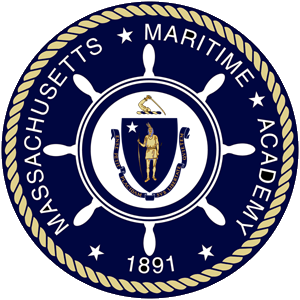EN-3216
Operational Controls
Course Description
A study of the principles of industrial measurement and control with an emphasis on practical applications aboard ship and in industry. Methods of sensing, measuring and transmitting data from industrial processes; feedback, automatic control systems, closed loop systems, controllers, control modes, and control configurations. Mechanical, electronic, analog and digital control mechanism will be discussed, as will programmable logic controllers.
This course consists of three 1-hour classes a week for a semester and a comprehensive final exam.
Learning Objectives
Demonstrate knowledge and understanding of the following STCW elements:
- OICEW-A4.1 Basic construction and operation principles of automatic control systems
- OICEW-A5.1 Operational characteristics of control systems
- OICEW-B1.1 Basic configuration and operation principles of sequential control circuits and associated devices
- OICEW-B1.2 Flowchart for automatic and control systems
- OICEW-B1.2 Functions, characteristics and features of control systems for machinery items
- OICEW-B1.3 Various automatic control methodologies and characteristics
- OICEW-B1.3 Proportional–Integral–Derivative (PID) control characteristics
- OICEW-B1.3 Associated system devices for process control
- OICEW-B2.5 Function and performance tests of electrical and electronic monitoring systems
- OICEW-B2.5 Function and performance tests of electrical and electronic automatic control devices
- OICEW-B2.5 Function and performance tests of electrical and electronic protective devices
- OICEW-B1.3 Configuration and operation principles of control systems
Topics
Fundamentals of Automatic Control
Automatic Controls Methods
- ON-OFF Control
- Sequential Control
- Proportional-Integral-Derivative (PID) Control
- Programmable Logic Control
Sensors and Measurement
- Temperature
- Pressure
- Flow Rate
- Level
- Speed
- Flame Sensors
- Combustion Properties
- Explosive Gases
- Relative Humidity
- Salinity
- Dissolved Oxygen
Transmitters and Control Signals
- Electrical
- Pneumatic
- Digital
Controller Mechanisms
- Pneumatic
- Electrical
- Digital
Final Control Elements
- Pneumatic Operators
- Servomotors
Other objectives
At the completion of the course, the student will
- Understand the purpose and operation of automatic control devices found aboard ship and in industry
- be familiar with the hardware and software used in industrial control
- be prepared to troubleshoot and repair basic control system faults
